October 29 is a day marked by significant events and iconic figures from Africa and its diaspora. From resistance to colonial empires to cultural contributions, discover the stories of Kongo’s King Antonio I, the city of Goma amid conflict, Liberia’s first female president Ellen Johnson-Sirleaf, and many more.
Key events
October 29, 1665: The Battle of Mbwila and the fall of the Kongo Kingdom
On October 29, 1665, the plains of Mbwila in Angola became the stage for a decisive clash between the Kingdom of Kongo, led by King Antonio I, and Portuguese colonial forces. This confrontation, known as the Battle of Mbwila, marked a turning point in Kongo’s history, sealing the fate of this prosperous kingdom against colonial ambitions.
For two centuries, Kongo and Portugal maintained diplomatic and trade relations. However, these ties weakened due to Portugal’s growing demands on Kongo’s resources. In 1663, when the Portuguese demanded exploitation rights over Kongo’s wealth, Antonio I refused, igniting tensions that culminated in the Battle of Mbwila. Leading an army of peasants and musket-armed soldiers, Antonio I rallied his troops to defend the kingdom’s integrity.
Opposing them were the Portuguese, well-equipped and backed by two cannons, under the command of Luís Lopes de Sequeira. The battle quickly turned in favor of the Portuguese, leading to Antonio I’s capture and execution. His royal treasures and insignia were taken to Lisbon as war trophies, while Kongo descended into civil conflict, fracturing the kingdom for decades. The fall of Kongo symbolized more than just military defeat; it marked the beginning of a long twilight for Africa in the face of colonial ambitions.
October 29, 2008: Goma at the heart of a perpetual crisis
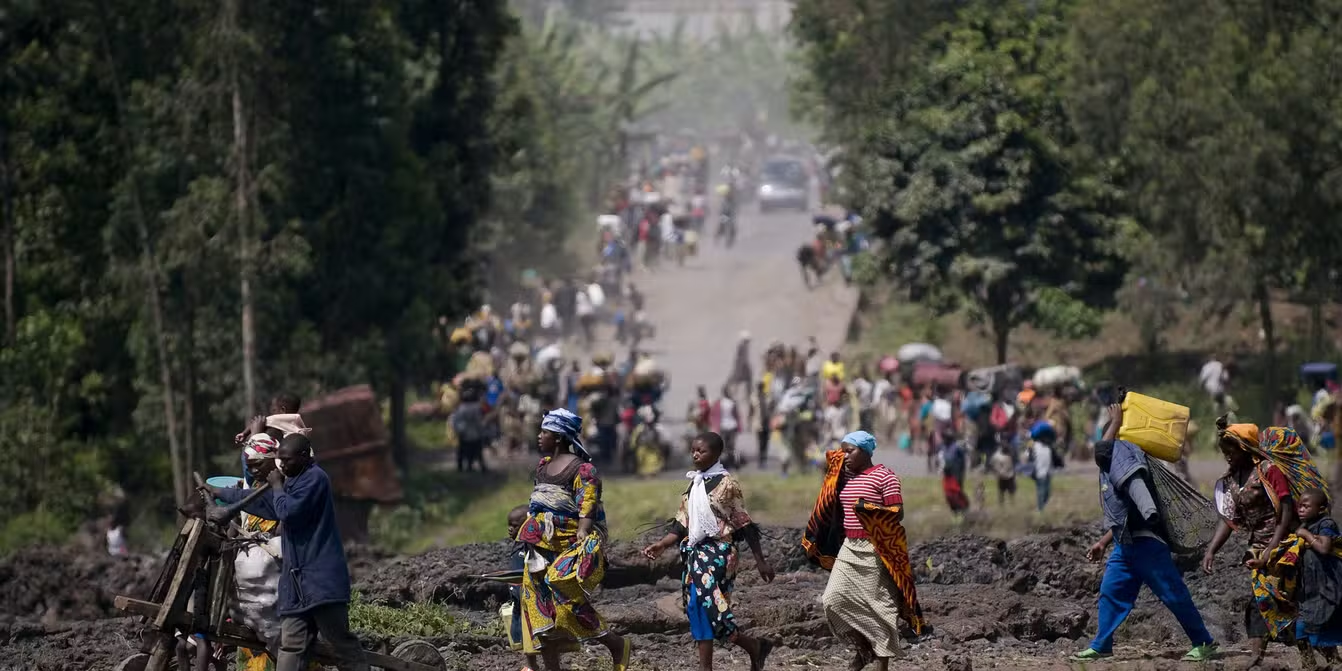
In October 2008, Goma, located in the conflict-ridden Great Lakes region, teetered on the brink as rebel forces led by Laurent Nkunda advanced, threatening the city’s stability and displacing thousands. On October 29, the rebels announced a unilateral ceasefire, yet the specter of violence loomed. MONUC, the UN peacekeeping mission, deployed to protect populated areas as refugees crowded the streets, seeking shelter.
Despite the temporary reprieve, violence and looting continued to plague the city, deepening civilian suffering. Disorganized Congolese forces contributed to the chaos, often commandeering vehicles and forcibly requisitioning supplies. The United Nations Security Council condemned the rebels’ advance, though the non-binding resolution provided little hope for swift action.
The following day, as conditions worsened, humanitarian actors, including World Vision, withdrew from high-risk areas to locations nearer the Rwandan border. Calls for direct negotiations between Nkunda and the Congolese government began to emerge, offering a glimmer of hope for a peaceful resolution.
Iconic figures
Ellen Johnson-Sirleaf: Liberia’s iron lady
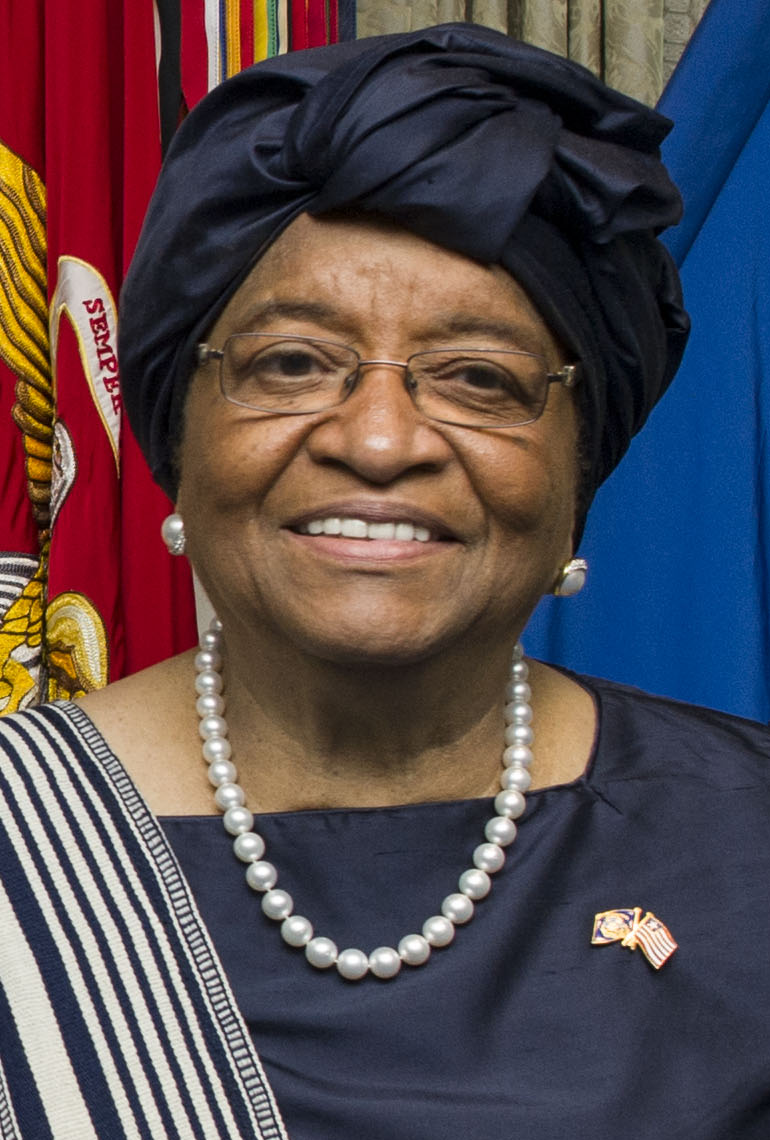
Born on October 29, 1938, in Monrovia, Ellen Johnson-Sirleaf is far more than a political figure; she embodies resilience against life’s obstacles and political hurdles. As the first woman elected head of state in Africa, Sirleaf not only broke gender barriers but transformed Liberia, leading it out of the ruins of a devastating civil war.
A Harvard graduate, she first distinguished herself as an economist before entering politics. Her early career was defined by her commitment to transparency and anti-corruption efforts, earning her the nickname “Iron Lady.” After fleeing death threats under Samuel Doe’s military regime, she returned to Liberia, resolute in restoring her country’s dignity. Elected president in 2005, she inherited a broken Liberia, dedicating herself to rebuilding its infrastructure and restoring order.
In 2011, she shared the Nobel Peace Prize with Leymah Gbowee and Tawakkul Karman for their work promoting peace and women’s empowerment. Her presidency, however, was not without controversy, with some critics pointing to past ties with armed factions. Nonetheless, Sirleaf remains an undeniable figure in contemporary African history, inspiring generations of women across the continent and beyond.
James Beckwourth: The african american pioneer
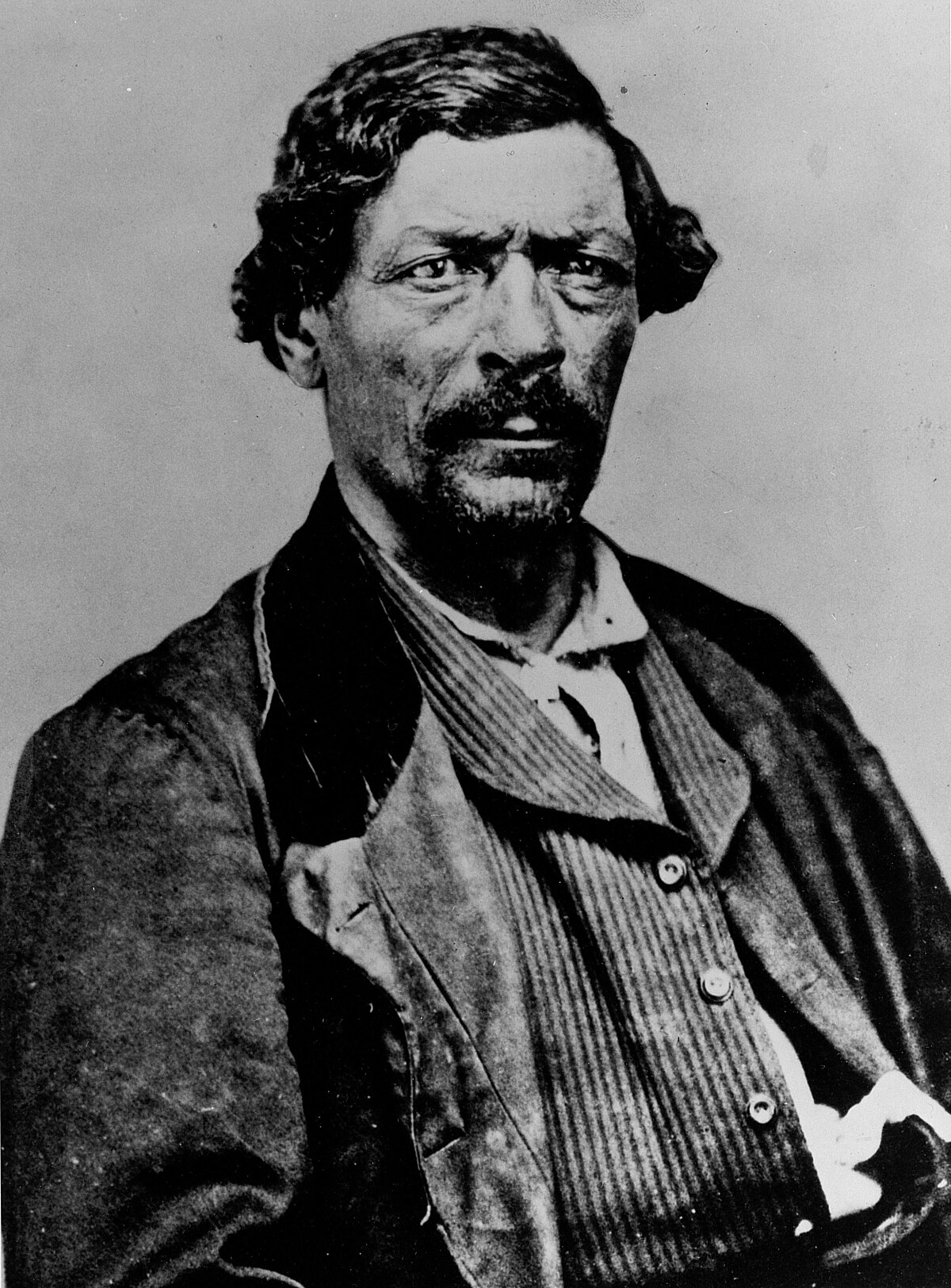
James Pierson Beckwourth (1798-1866) was a mountain man, fur trader, and explorer born enslaved in Virginia. Freed by his father, he later became an apprentice blacksmith before moving westward to establish himself among the American frontier’s trappers and explorers.
Beckwourth spent years living with the Crow Nation, becoming a tribal leader and forming alliances that expanded his survival skills and territorial knowledge. His legacy includes discovering Beckwourth Pass, a natural pathway through the Sierra Nevada that facilitated the passage of pioneers heading to California during the Gold Rush. This trail, known as the Beckwourth Trail, became a significant route for settlers, cementing his legacy as a guide and scout.
His autobiography, dictated to Thomas D. Bonner in 1856, is a colorful account of his adventures, though some details are exaggerated. Beckwourth’s life remains a valuable record of the challenges and opportunities of his time, with his story standing as a testament to resilience and adaptation in a complex world. He died in Denver on October 29, 1866, leaving an enduring legacy as a symbol of African American contributions to American exploration.
Hendrik Witbooi: Resistance and legacy
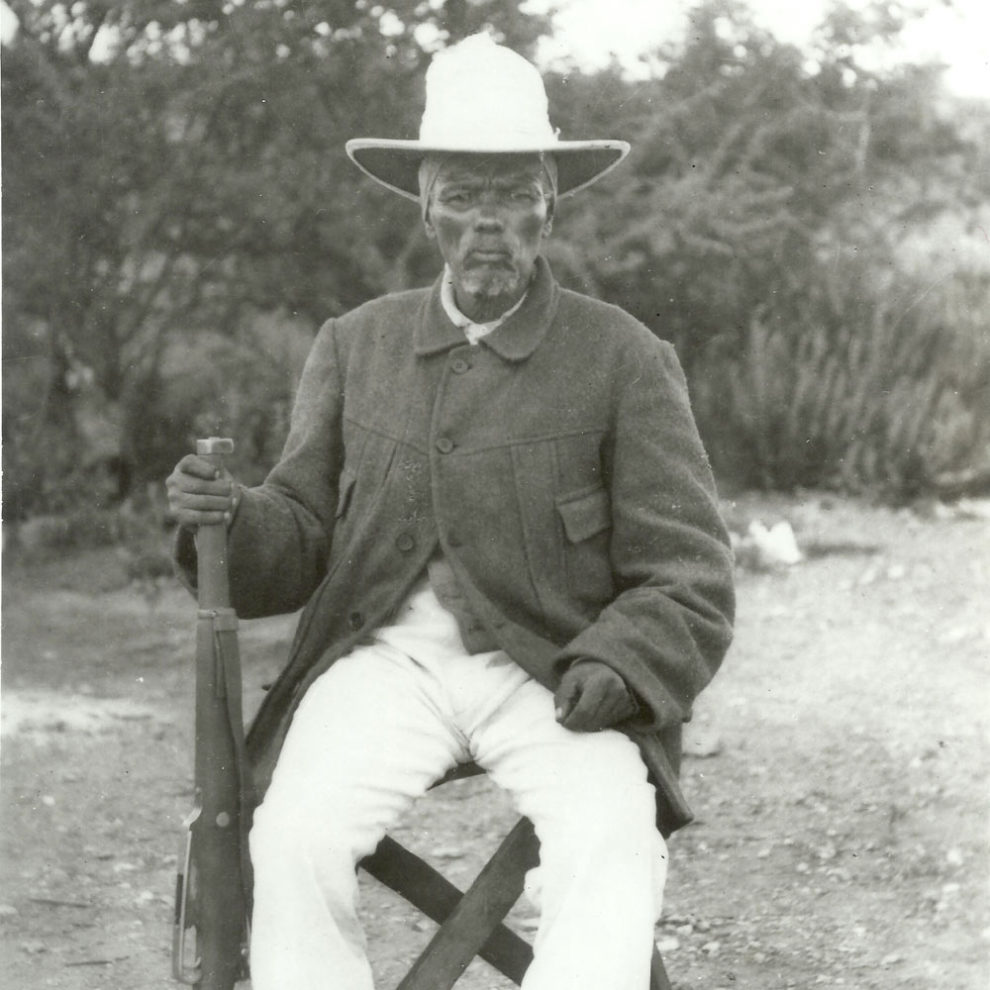
Born in 1830 in Pella, South Africa, Hendrik Witbooi is a symbol of anti-colonial resistance in Africa. A leader of the Nama people, Witbooi opposed German colonial expansion in present-day Namibia. His struggle, culminating in the early 20th century, represented more than a battle for his people’s survival; it was a fight for autonomy, dignity, and respect for African cultures amid imperial ambitions.
As a military strategist and diplomat, Witbooi inspired his people, combining military tactics and political acumen to counter German forces. His steadfast resolve was pivotal during the Nama and Herero uprisings, uniting African communities in a common cause. Although he died on October 29, 1905, his memory endures.
Today, Witbooi is celebrated in Namibia, his image gracing national currency as a reminder of his legacy and resolute spirit. His example remains an inspiring symbol of resistance, highlighting the value of freedom for future generations of Africans.
Randy Jackson: The virtuoso musician of the Jackson family
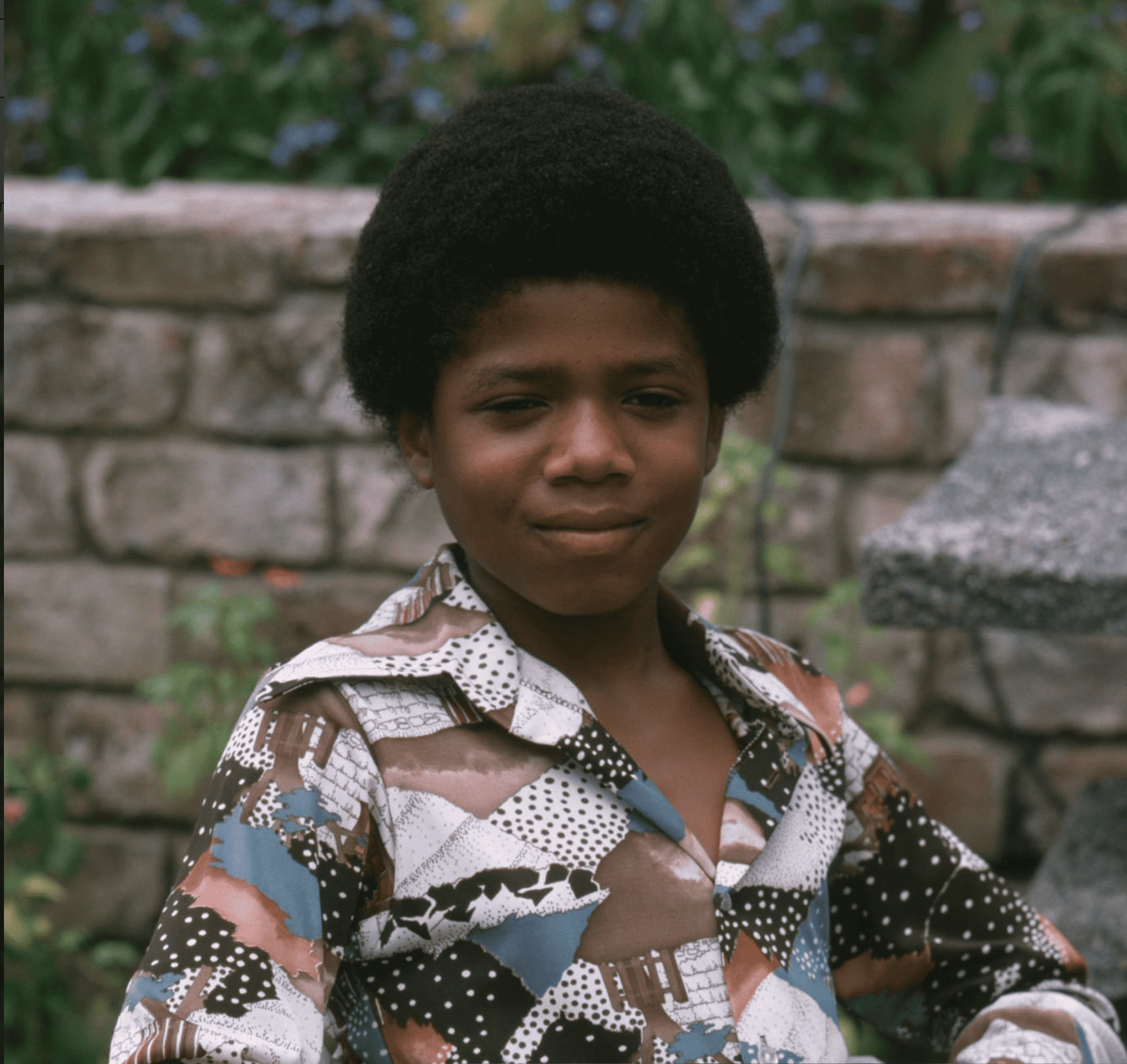
Born on October 29, 1961, in Gary, Indiana, Steven Randall “Randy” Jackson, known as “Little Randy,” is the youngest brother of the legendary Jackson Five, although he joined the group later. Growing up in the famous Jackson family, Randy demonstrated exceptional talent, quickly mastering multiple instruments, including bass, drums, keyboard, and percussion.
He officially joined The Jacksons in 1976, bringing fresh energy to the group. At 16, he co-wrote one of their biggest hits, “Shake Your Body (Down to the Ground)” with his brother Michael, showcasing his skill and the pop-funk fusion that defined The Jacksons’ music. Randy also collaborated on Michael Jackson’s solo albums, contributing his musical expertise to Off the Wall.
In 1989, after The Jacksons era ended, Randy formed his own group, Randy & the Gypsys, highlighting his determination to carve out an independent path. Today, Randy Jackson remains an iconic figure in pop music from the 1970s and 1980s, with a musical legacy that extends beyond the Jackson family’s shadow.
Gabrielle Union: Actress and activist

Born on October 29, 1972, in Omaha, Nebraska, Gabrielle Union is much more than a prolific Hollywood actress; she embodies resilience and advocacy. After starting in popular TV series like 7th Heaven and Sister, Sister, Union made a name for herself in the 2000s with roles in films such as Bad Boys 2 and Deliver Us From Eva. Her role in Being Mary Jane, which earned her the NAACP Image Award, revealed her dedication to portraying complex, grounded characters.
Beyond acting, Union is a fierce advocate for victims’ rights and anti-sexual violence, inspired by her survival of an assault at age 19. A vocal supporter of racial and social justice, she produced the thriller Breaking In in 2018, asserting her role in the industry.
Today, Union is an inspiring icon who balances talent with integrity, continuing to challenge Hollywood’s boundaries through her artistic choices and tireless activism.
Tracee Ellis Ross: Impact through Art

Born Tracee Joy Silberstein on October 29, 1972, in Los Angeles, Tracee Ellis Ross represents elegance and activism in equal measure. As the daughter of icon Diana Ross, Tracee forged her own path in Hollywood, rising to fame in acclaimed series like Girlfriends and, more recently, Black-ish. Her role in Black-ish earned her a Golden Globe, the first for a Black actress in a comedy series since Debbie Allen over 30 years ago.
But Tracee is more than an actress. As a gender equality advocate and founder of the beauty brand Pattern Beauty, she promotes media diversity and champions women’s empowerment. Known for her bold fashion choices and cultural influence, Tracee Ellis Ross has become more than just a Hollywood star; she’s a voice resonating far beyond the screen.
References
- Vansina, J., The Kingdoms of Africa, University of Wisconsin Press, 1966.
- Hilton, A., Kingdom of Kongo, Oxford: Clarendon Press, 1985.
- Prunier, G., Africa’s World War: Congo, the Rwandan Genocide, and the Making of a Continental Catastrophe, Oxford University Press, 2009.
- Sirleaf, E. J., This Child Will Be Great: Memoir of a Remarkable Life by Africa’s First Woman President, Harper Perennial, 2009.
- Zimmerman, J. M., The Life of James Pierson Beckwourth: Mountaineer, Scout, Pioneer, and Chief of the Crow Nation of Indians, University of Nebraska Press, 1982.
